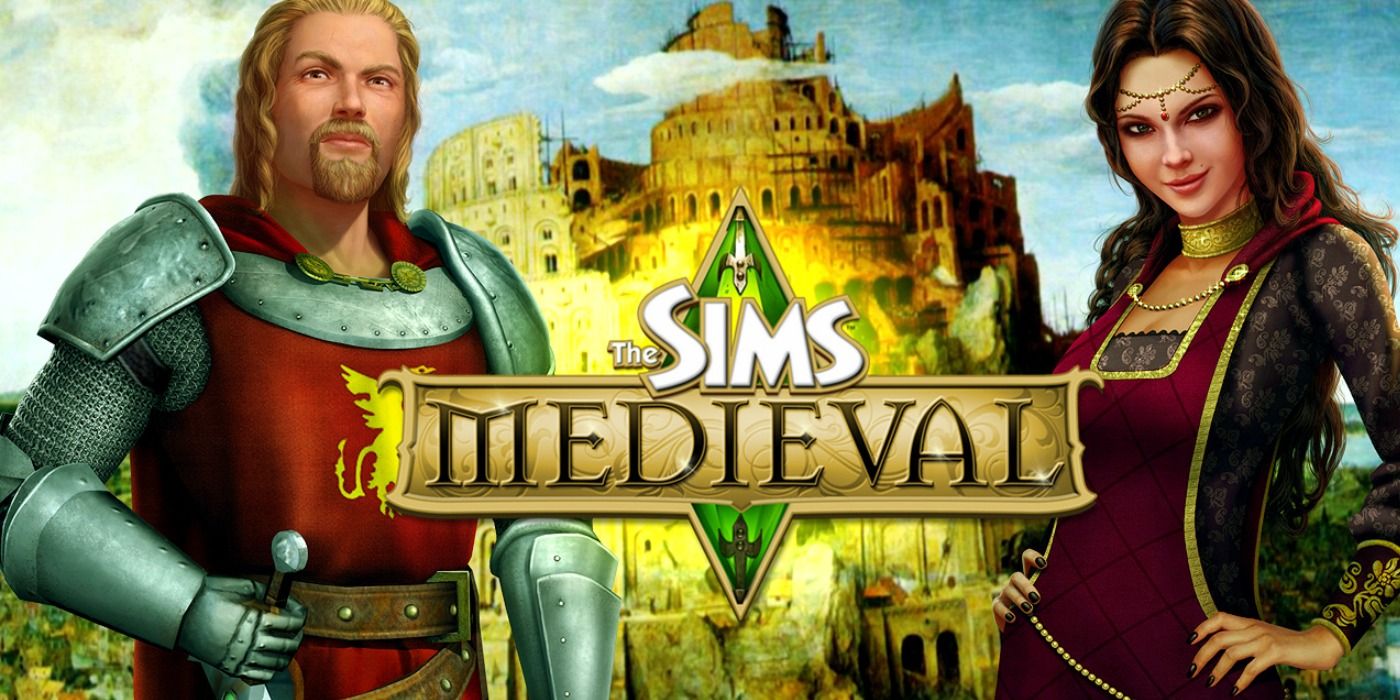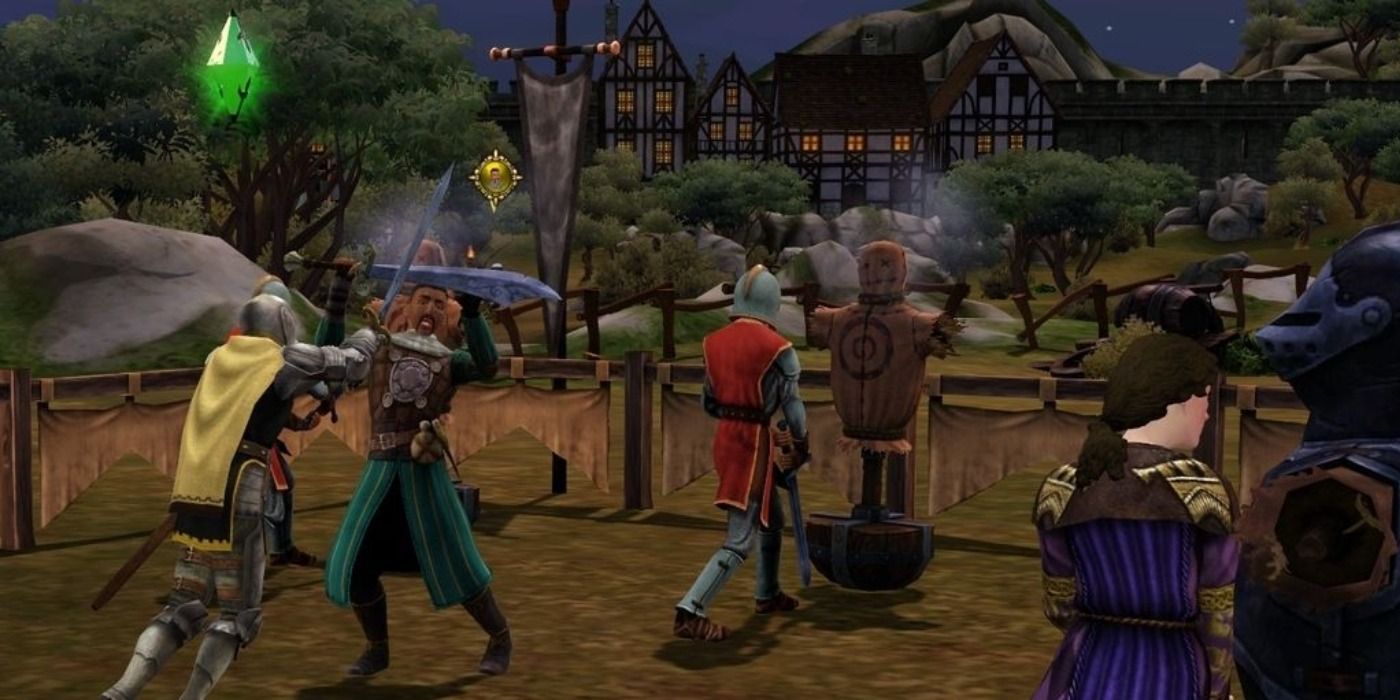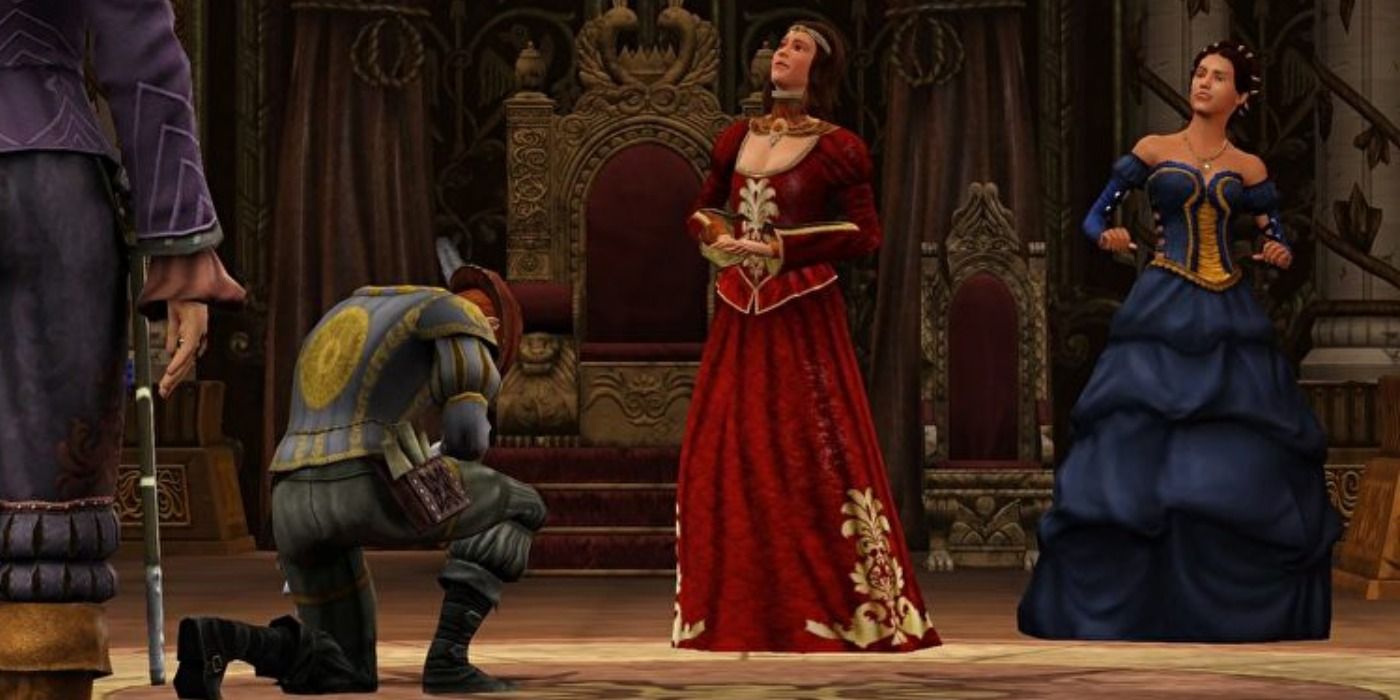The Sims franchise has beloved for two decades now. Not only are its simulation and building aspects addicting, but many players also find the game relaxing. While there is the occasional chaotic kitchen fire or money shortage, The Sims games offer non-stop fun, and each new release grown the fanbase. However, many fans have overlooked the franchise's spinoff titles, most of which released during The Sims 2 and The Sims 3 eras.
One particular title that has been overlooked is The Sims Medieval, a 2011 game that offered a Sims experience like no other. The game takes the character creation and gameplay Sims fans love and sets them in the time of kings and knights. Despite that, the title was never particularly popular, and has been all but forgotten nearly a decade after its release.
Some of The Sims Medieval's lack of impact may stem from initial misunderstandings regarding what the game was. When it was announced, some players mistakenly thought it was an Expansion Pack for The Sims 3, and then dismissed it upon learning that it was a separate game. Plus, as a spinoff, it never received the same treatment as main titles. That's unfortunate, as The Sims Medieval brings elements to the table that make it a unique yet familiar experience worthy of a standalone The Sims game.
For starters, the game obviously doesn't take place in contemporary setting. While other Sims games are set in a time resembling the present day, with objects like laptops, smartphones and tablets introduced as they became more common in the real world, The Sims Medieval does the opposite. Instead, it takes place in medieval setting, as the title suggests, with the clothing and aesthetic to match. It also received a Pirates and Nobles expansion, which added new quests and items.
Unlike other games in the franchise, The Sims Medieval contains more story and quest-based gameplay, with freeplay for each kingdom unlocked upon completing a "Kingdom Ambition." Even when you do, gameplay is fairly limited. Players can only control one Hero Sim and, while they can start a family, their spouse and children will remain NPCs. Children won't age up unless the Hero Sim dies and they are selected to take over the quest. These limitations certainly contradict the nearly endless freedom the main Sims games provide, but it contained interesting RPG features and themes and combined them with Sims elements.
Even though players have to follow a scripted storyline, the game's outcome largely depends on the Hero Sim being played, the quests players have accepted, the path chosen to complete the quest and how the heroes performed during the quests. The stories are interesting, and players can select from 10 professions, including Monarch, Knight, Priest, Wizard and Blacksmith, each with its own actions and quests to complete.
And, just like in the main games, players can also create Sims with unique appearances and personalities. While you might not be able to, for example, create a Sim with blue skin, there are still a variety of customization options to choose from. Players also have to assign their Hero Sim two traits and a Fatal Flaw from a variety of options, with impact how Sims react when placed in certain scripted scenarios. For example, a drunkard Monarch may react to a situation differently than a bloodthirsty one. Certain quests will allow Sims to overcome their Fatal Flaw and replace it with a special Legendary Trait.
While it doesn't have the same depth as the main series, The Sims Medieval is still a fun game with plenty of interesting ideas, and it would be nice to see it return in some fashion. It's been a while since we've gotten a Sims spin-off title that wasn't a mobile game. EA has faced a lot of criticism recently over how it's dealt with additional Sims 4 content, and it would be nice to see the series take some risks again.



